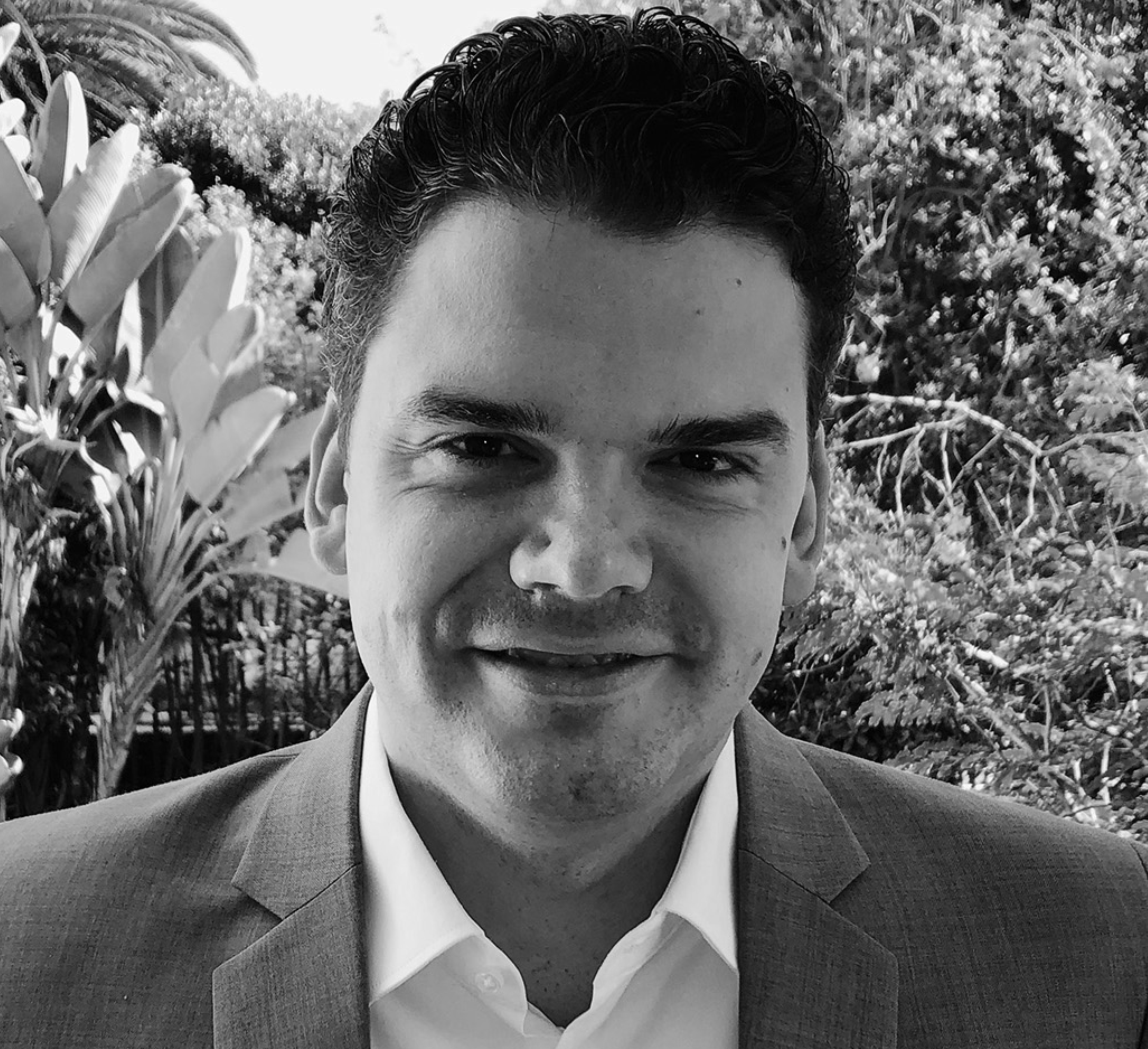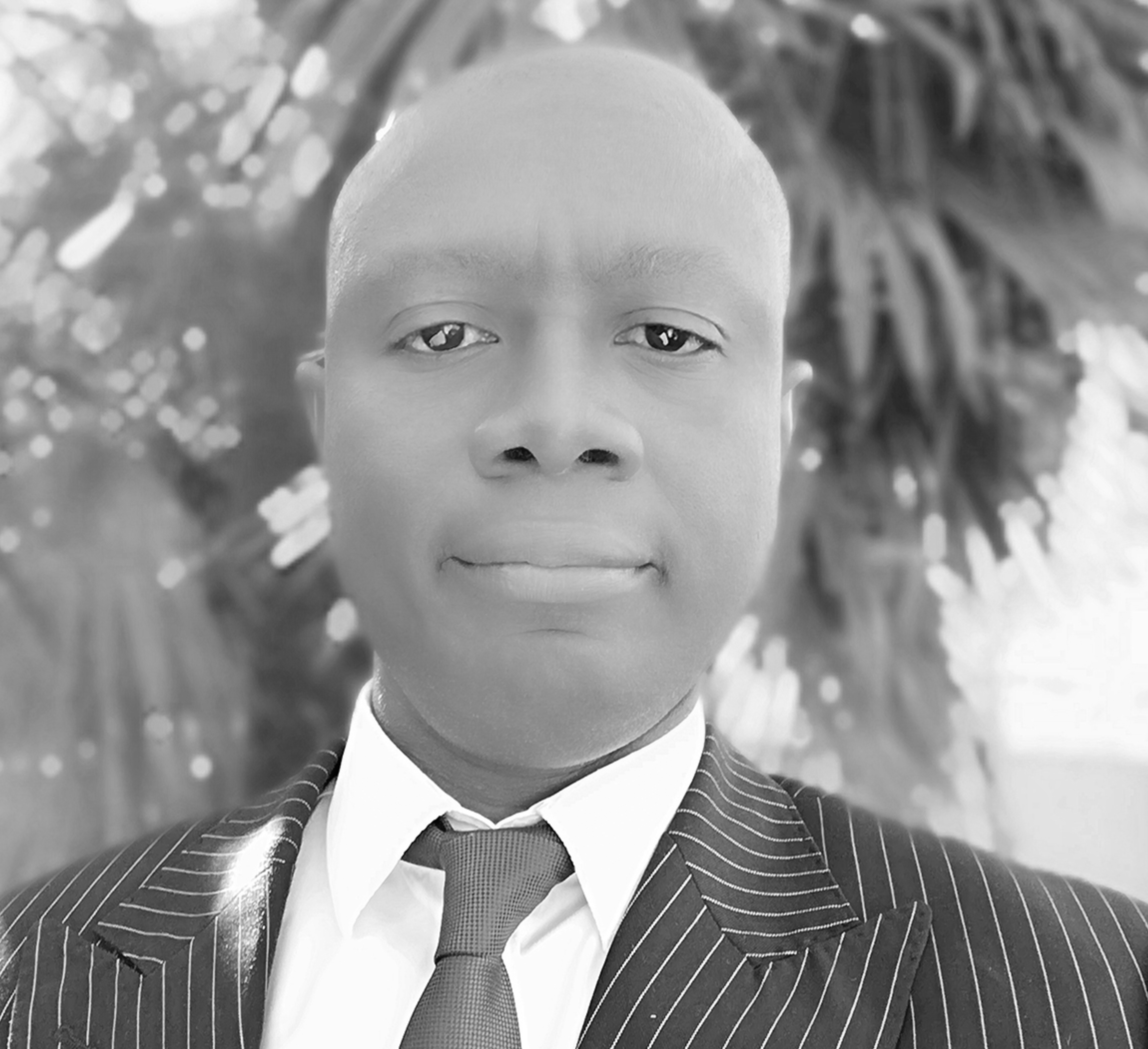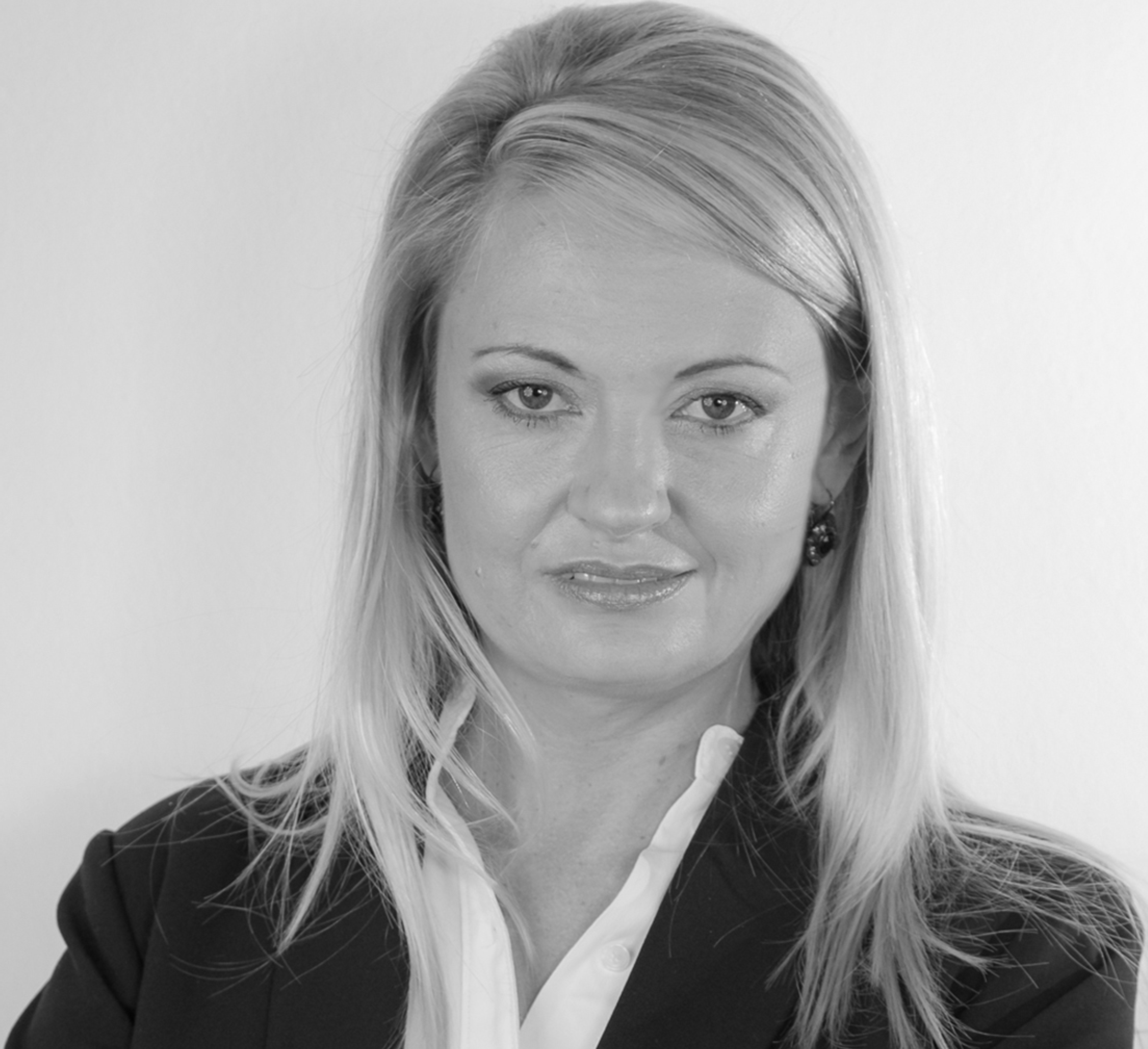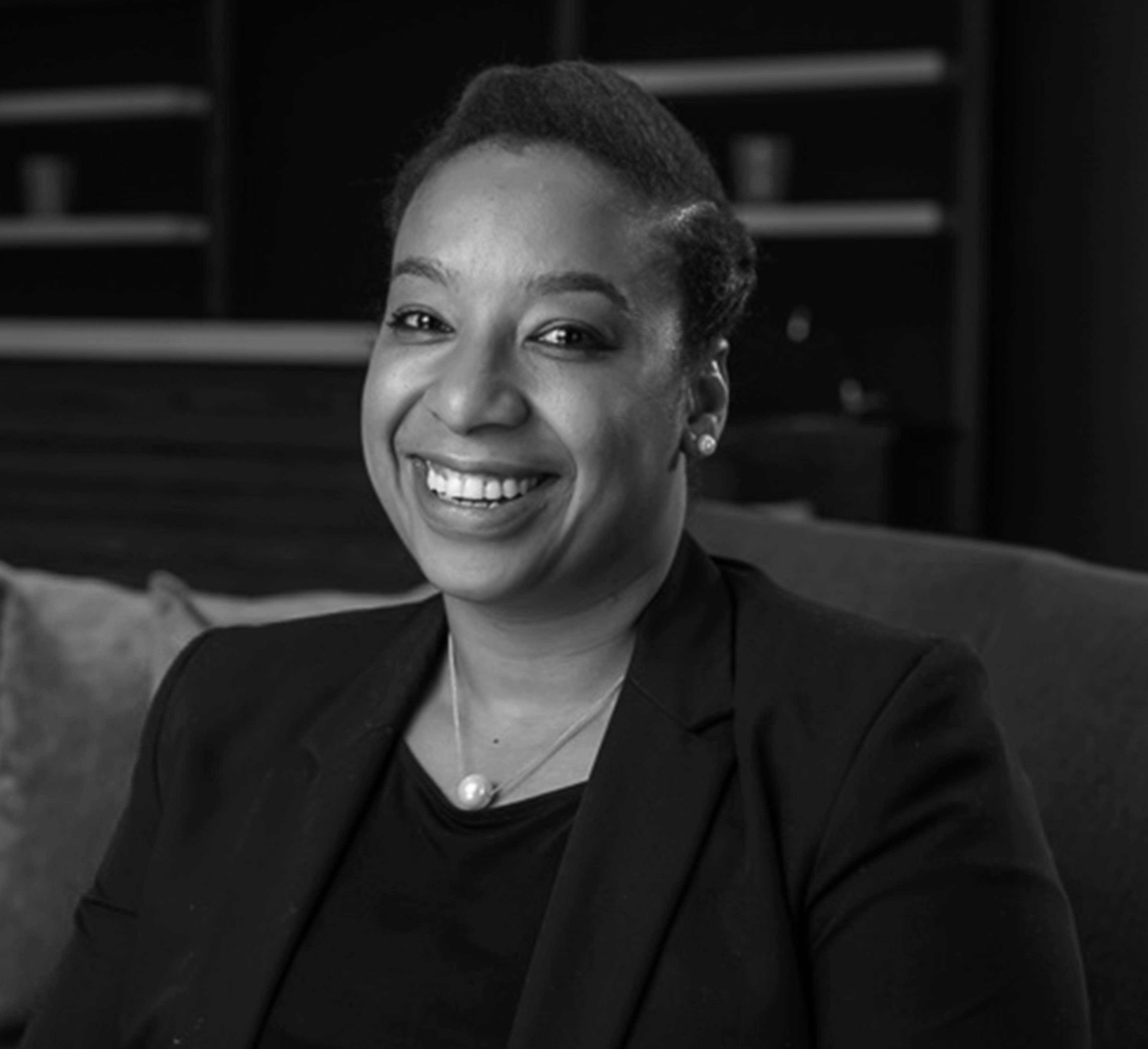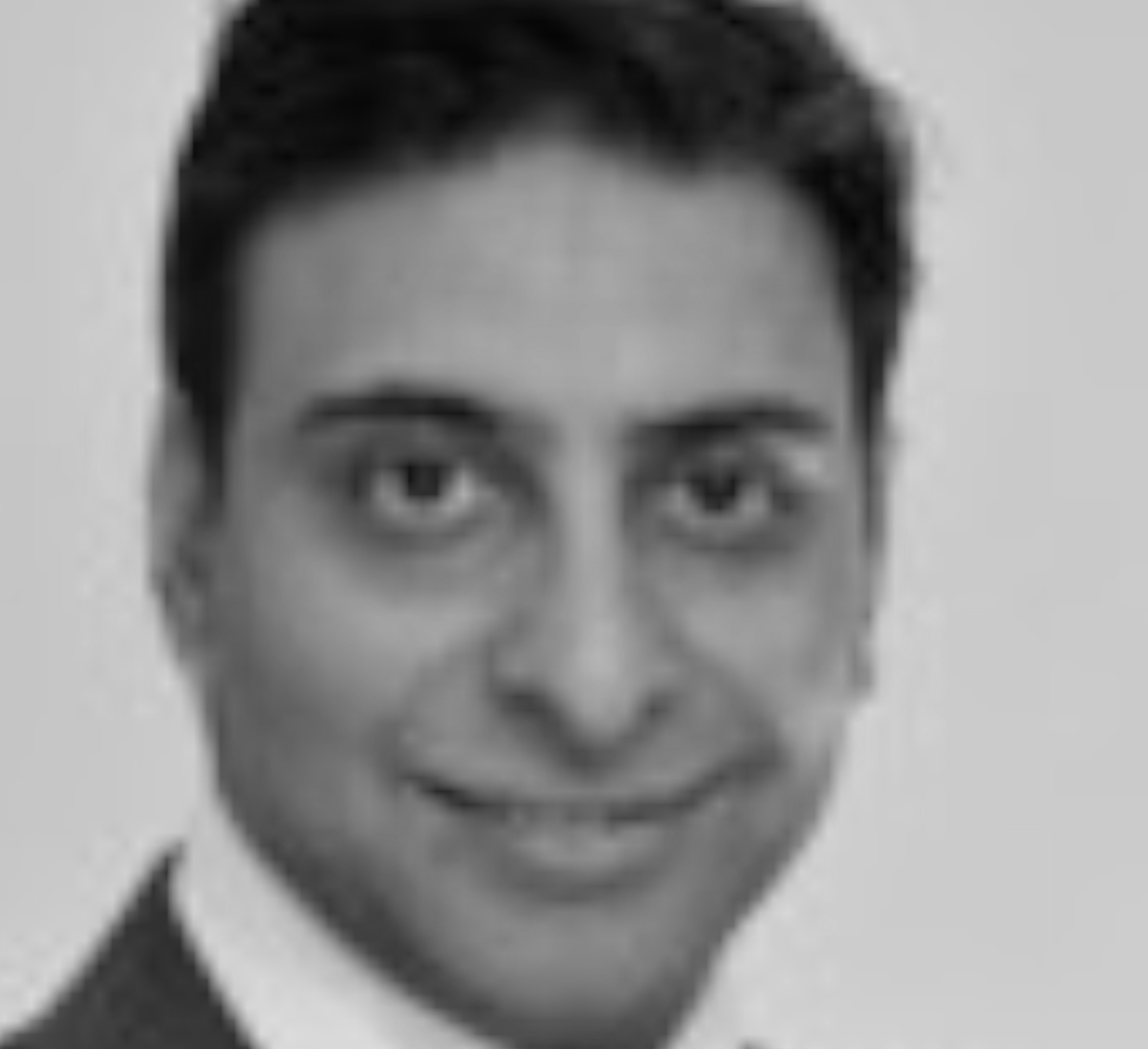51: Dominik Anderhofstadt
CFO & Compliance Officer: Henkel
Dominik Anderhofstadt, CFO for Henkel South Africa, explains why finance executives need to communicate with stakeholders as never before – while keeping an unwavering eye on cash flow – during these turbulent times.

CIARAN RYAN:This is the opportunity to plug the Certified Financial Officer of South Africa designation, which is offered by the South African Institute of Business Accountants. This is really the Formula One of accounting designations and is available only from the South African Institute of Business Accountants. The CFO designation is internationally recognised and validates the years of toil and ingenuity that it takes to reach the top of your field. You’ll be part of an exclusive and powerful network of CFOs and finance executives. As a CFO, which is a Certified Financial Officer of South Africa, you get to share in a wide range of benefits, you gain status as an international finance executive and achieve your listing in the official CFO directory. You’ll receive exclusive invitations to the CFO Talks events and get a chance to connect with knowledgeable thought leaders within the CFO community. For more information, go to www.saiba.org.za/designations
CIARAN RYAN: This is CFO Talks and I am Ciaran Ryan and today I am delighted to be joined by Dominik Anderhofstadt who is the Chief Financial Officer & Compliance Officer for Henkel South Africa. Henkel offers product solutions for adhesives as well as beauty care industries in South Africa. Before being in South Africa Dominik held various positions in controlling business development and finance in the Middle East and Germany. Right Dominik straight down to business welcome, how are you?
DOMINIK ANDERHOFSTADT: Hi Ciaran, thank you very much for the invitation and hello to all the listeners.
CIARAN RYAN: Let’s kickoff, tell us a little bit about the Henkel, I’m familiar with the name to some extent, but tell us about the company and how you ended up in South Africa.
DOMINIK ANDERHOFSTADT: Sure, Henkel is a global company with headquarters in Dusseldorf, Germany and is listed on the German stock exchange. It operates in 3 business areas as you have already mentioned, adhesives technologies, beauty care and laundry at home care and we generated worldwide turnover of €20 billion in 2019. The company was founded more than 140 years ago and employs over 52 000 employees in 120 countries. In South Africa we established a presence back in 1951 and our customers here range from large automotive manufacturers, to consumer goods companies, retailers as well as hairdressers. Our flagship brands in the country are Pritt, Patex, Persil, Purex, Loctite, Technomelt and Schwartzkof and we have 2 production plants, 1 in Alberton and 1 in Belville in Cape Town. My personal relationship to South Africa dates back to 2005 when I participated in a 1-year student programme in Cape Town and I have been fascinated by the country ever since. During my previous assignment for Henkel in Dubai, I worked very closely with the local South African finance team and was subsequently offered a position here back in 2014 and I did not think twice to accept it.
CIARAN RYAN: Ok so you have some history going back with South Africa for quite a while. Where are you based in Johannesburg or Cape Town?
DOMINIK ANDERHOFSTADT: I am based here in Johannesburg where our headquarters are located.
CIARAN RYAN: And your factory well one of your factories is in Alberton and the other one is in Bellville in Cape Town?
DOMINIK ANDERHOFSTADT: That is correct
The South African Market
CIARAN RYAN: In the time you have been in South Africa, how do you see business conditions relative to elsewhere in the world from the point of view of a Finance Professional? Are we up to standard from the standards you have seen elsewhere in the world or are we lagging behind?
DOMINIK ANDERHOFSTADT: As we are well aware South Africa is facing significant challenges in terms of business and investor confidence as well as stagnating economic growth. Even though some of the attributes of the South African economy might be applicable to some more advanced economies for e.g. low GDP growth that we are experiencing or the relatively high market capitalization. South Africa is generally perceived and from my own experience, dealing with international stakeholders, perceived to be a dynamic emerging market. That could create some unrealistic expectations in terms of business growth and also return on investment at least in the short to midterm. On the other hand, we see a very high volatility and transitional character of the South African economy which are key features of an emerging market. Together this combination makes South Africa a very unique case which business leaders need to be aware of and manage accordingly. Looking at the regulatory point of view, overseas investors may not be familiar with country specific topics like foreign exchange control or black economic empowerment which could lead to significant problems if not applied correctly. Therefore, they need to conduct proper market research and work together with reliable business partners who are familiar with the local conditions. That being said I still personally believe there are a lot of business opportunities here in South Africa. In terms of infrastructure, institutional strength and also industrial development, South Africa is clearly standing out amongst our peers not only in Sub Saharan Africa but also other emerging markets worldwide which should not be forgotten despite all of our economic challenges.
Mergers & Acquisitions
CIARAN RYAN: It’s good that you are optimistic about South Africa, particularly at this time when we are in the middle of the Covid-19 lockdown and I presume we are talking to you from your home office wherever that is, we would normally meet in a studio. You have previously been involved in mergers and acquisitions and we read a lot about M & A deals that don’t deliver on the results that were expected, maybe just talk for a minute about that, why is that? Why is M & A not delivering on the results that are expected and what should you focus on when doing acquisitions?
DOMINIK ANDERHOFSTADT: Many M & A deals already fail in the pre transaction stage where the synergy potential is often overstated and consequently the price premium paid is too high. So, in this case even a very successful person post-merger integration will fail to realise the expected benefits from the transaction. From my perspective there are three critical success factors for merger and acquisition deals: Firstly the business models of the merging entities need to be compatible this obviously requires a very thorough understanding of the underlying business operations and the general environment in which the business operates. What works in one company might not necessarily work in another company and that needs to be assessed prior to concluding the deal. Henkel would therefore apply a very rigorous selection process, which includes strategic fits as well as financial attractiveness as a criteria. Secondly there needs to be a cultural fit of the two companies as this could be a potential roadblock for any M & A strategy and cause significant challenges during the integration phase. This relates on one side to organizational culture when looking at for example a large corporation acquires a start up company, but also country cultures in case it is a cross border transaction. As a result, employees of both businesses including senior management should be involved in the process very early on to identify and address potential gaps. Moreover, there should be a transparent communication and exchange about the companies mission, vision and values as well as the applicable policies and procedures to avoid any unclarity and misalignment after the fact. Lastly the integration of processes and systems should be initiated shortly after the closing of the transaction to avoid any operational issues. The sooner these functions can be integrated, the earlier the companies can focus on the realization of synergies and the creation of value. For that reason, Henkel has displayed a strong track record for fast integration of it’s acquisitions in the past.
CIARAN RYAN: Turning for a moment to your hat as a Chief Financial Officer for Henkel South Africa, you have already spoken about some of the unique challenges that we have in South Africa. For example regulatory issues such as Black Economic Empowerment, but what are the issues that give you the most headaches? Are these compliance issues or is it becoming more of a people management function?
DOMINIK ANDERHOFSTADT: In the current economic environment in South Africa, I see the largest challenge in the management of cash flow and profitability. We see that customers are facing cash shortages which is impacting their ordering and payment behavior and the markets are becoming highly competitive. On the other hand, volatility of the South African Rand is putting significant pressures on our margins as most of our cost of sales are based on foreign currency. In this dynamic environment finance needs to adopt a much more proactive role than has traditionally been used to provide forward looking guidance and an actively accompanied business strategy. Consequently, the profile of the finance professional is changing and requires very strong strategic capabilities and business acumen as well as communication skills so that we can increase the impact across the organization. Good relationships with the business and stakeholders are also key to manage finance being the custodian of compliance and financial integrity but also adding value to the business. So, these are the core competencies that I focus on when developing internal talent or recruiting externally. You also mentioned the situation we are currently in with regard to the Corona pandemic outbreak which accelerated all the abovementioned factors and from my perspective amidst all the uncertainty, finance is playing a key role in stabilizing the business and providing leadership to the organization. An important tool that we are using here is scenario planning so we can simulate different possible outcomes of the crisis, define any action plans and then position the company for the future. It’s also key that we have regular and transparent communication with the different stakeholders regarding the financial impact throughout the crisis to establish a cost and cash consciousness across the organization, which is much needed. Lastly, I also think that the corona crisis will further drive the digital transformation of the finance profession. I am currently working from home for the past 2/3 weeks and am quite surprised what is possible. We will definitely see further developments in areas for example process automation, remote and paperless operations but also business analytics.
CIARAN RYAN: I agree, I think everybody that you speak to at the moment is and I’m sure in an organization like Henkel you’d be looking at, if we have extended lockdown. I was talking to someone in Belgium just yesterday and I think their lockdown has been extended until the end of June. I guess the point being that we are going to have to get used to operating this way maybe for a bit longer than we anticipated. Moving on, tell us a bit about where you grew up and studied, I hear from your accent that you are German and tell us about your career journey.
DOMINIK ANDERHOFSTADT: I had hoped my accent wouldn’t give it away actually (laughs) but I am actually originally from Germany I grew up in a town called Nuremberg in the South of Germany where I attended university and graduated with a Masters degree in Business Administration, where I specialized in Finance and Accounting and Controlling and I am also a Certified Management Accountant. As I mentioned already I studied for one year in Cape Town as an exchange student, which gave me a totally new perspective and opened my eyes to explore new things outside of my comfort zone which is a personal attribute that I have maintained until now. After completing my studies I then joined Henkel as the company offered International career development perspective and also gave me exposure to a wide range of industries and functions as I mentioned it is a very diversified company and as a result you get a lot of exposure to that. I have worked for the Henkel Group for 11 years, I started off as a regional controller for the beauty care division at Global Headquarters where I was involved in the Global planning, forecasting and reporting processes and I was then given at a very early stage of my career exposure to work with senior management in Germany which also shaped my career. After 3 years I then had the opportunity to gain International work experience and move to the regional Headquarters in Dubai in the United Arab Emirates as a manager for business development and controlling for the Middle East Africa region. In this role I supported market expansion in the region with financial analysis and steered the regional sales and profitability performance and was involved in Mergers & Acquisition projects. Then after working in the regional global headquarters for a couple of years I wanted to gain further perspective on the various Henkel businesses by taking over a local role to gain a deeper understanding of the processes on the ground. I then took the role as Head of Controlling at Henkel South Africa in 2014. In this role I successfully established a business controlling function in South Africa and took over the responsibility for financial controlling. Key tasks included steering of the local month end and year end closing processes, planning, reporting, managing of cost budgets. From a project point of view, I was involved in the migration of transactional controlling tasks to the shared service centre and also the financial integration of a newly acquired adhesives business into Henkel South Africa. In 2018 I was then promoted as the Head of Finance for Henkel South Africa or CFO where I have the responsibility to lead and oversee the full finance function, which incorporates the area controlling, general accounting, treasury and order to cash. In this function I provide overall financial direction to the company and implement the financial strategy and work very closely with executive management as well as the Board of Directors. As previously stated, I also have the role of the Compliance Officer which ties in together with the role of Head of Finance because effectively is it all about ensuring financial integrity and also compliance with external and internal regulations. So for example address I all Henkel’s various corporate standards, ultimately I am also involved, especially in the current times in the steering of foreign exchange exposure, cash flows as well as customer risk management and ultimately managing the financial performance of the company.
How Covid-19 is affecting business
CIARAN RYAN: I have to ask you this question, I would imagine that sales like every organization in the world has suffered because of this downturn are you experiencing the same kind of thing? Is it a cause for concern? When I say this thing of course I am talking about the lockdown, the economic shutdown that we are all witnessing.
DOMINIK ANDERHOFSTADT: Look I mean the financial impacts obviously are significant but at this point and time there is also obviously a very high uncertainty involved in how all this will turn out, we do expect impacts from the outbreak on our financial performance, but at this stage we are not able to quantify any consequences.
CIARAN RYAN: Yes, I think it will take some months before the full impact is realized. I wanted to ask you another question, what kind of books do you read?
DOMINIK ANDERHOFSTADT: Well I think reading is one of my favourite pastimes when I’m not at work, so I read a broad variety of books ranging from fiction, business and leadership books to historical books. For this forum I would like to recommend three books which have left a lasting impression on me over the past years and have also been relevant for my career development. Firstly “The wisdom of finance” by Harvard Professor Mihir Desai, links finance concepts to literature, film, history and philosophy to make them more accessible, I can relate to this a lot because a large part of a CFO’s job nowadays is to communicate financial information in an understandable manner to stakeholders of different levels and backgrounds. Secondly “The state of Africa” by Martin Meredith helped me understand the history of this complex and fascinating continent which is obviously helpful when dealing here on the ground in the country or continent. Lastly “Act like a leader and think like a leader” by Herminia Ibarra gave me a very different perspective on leadership to simply try out different things and new approaches in terms of exploring at work to find one’s unique leadership style instead of overthinking and not acting. We also usually tend to be internally focused in our companies and the book therefore also advises us to actively strengthen our external network to gain new insights.
CIARAN RYAN: So that book was called “Act like a leader think like a leader” by Herminia Ibarra, I have heard of that book before. So it is too much thinking and not enough acting going on is that your key take away from that book?
DOMINIK ANDERHOFSTADT: Yes, the book states that a lot of times we basically try to change our mindset and then act but subsequently might not necessarily act. So, what the book is actually promoting is to explore new things and then develop the mindset made with the experiences made along the way.
CIARAN RYAN: Right and “The state of Africa” that was another book that you mentioned by Martin Meredith, I haven’t actually read the book is he optimistic about Africa or is he just explaining the state of the continent at the moment?
DOMINIK ANDERHOFSTADT: The book is a couple of years old so doesn’t necessarily take into consideration the current environment as such it’s more a historical overview starting from the time of the end of colonialization until the early/late 2000s. So it is more a report of things but it puts a lot of things into perspective on how certain countries have developed to where they are currently.
CIARAN RYAN: Right and the first book you mentioned was “The wisdom of Finance” by Mahir Desai, it sounds like quite a heavy read but how would you describe that book is it fairly easy to read?
DOMINIK ANDERHOFSTADT: Yes it is actually very easy to read, I mean he has a very refreshing style of writing and as I said there are certain concepts like weighted average cost of capital risk management that he compares with very random concepts sometimes even talk shows actually and then explains these concepts in a very understandable manner. So not a heavy read at all, a very enjoyable read.
CIARAN RYAN: Ok so I think I am going to take your advice and start reading maybe one of these to begin with and work my way through your reading list. I think on that note lets leave it at that, I want to thank-you for coming on and talking to us today. It’s been very refreshing to hear your perspective on South Africa, your optimism is great, and I think we need optimism at this particular time, it is a challenging time for everybody. I wish you the very greatest of success in your endeavors here in South Africa.
DOMINIK ANDERHOFSTADT: Thank you very much and goodbye to all the listeners.

